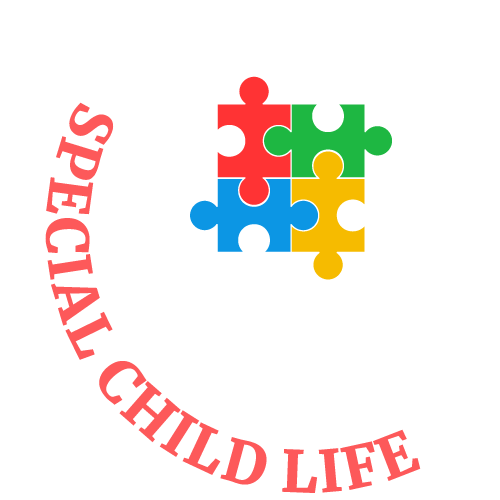The Basics Irritated and outraged all of the time; continuously arguing with people and in no way inclined to conform with policies that is what existence may be like if a person has Oppositional Defiant Disorder (ODD). ODD is a situation wherein youngsters and youngsters often show off indignant and defiant behaviors, making regular situations challenging for them and their households. Understanding Oppositional Defiant Disorder (ODD) is essential to finding the right type of help and strategies to manipulate those behaviors successfully.
In this manual, we will manipulate to examine what Oppositional Defiant Disorder (ODD) is, its signs and symptoms, and reasons, how it’s far identified, and which can be the pleasant methods to assist people with the sickness. By studying ODD now, you, as a determined trainer, or caregiver, can be creating a distinction in a child’s existence who has been stricken by such disorders.
What is Oppositional Defiant Disorder (ODD)?
Explanation of the concept of ODD as a youth behavioral infection characterized through the help of defiance, disobedience, and hostility closer to authority figures. Statistical assessment of the superiority of Oppositional Defiant Disorder (ODD) amongst kids and children. Demographical elements that affect the superiority of ODD, consist of age, gender, and socio-economic elegance.
Differences between ODD and Other Behavioral Disorders
- Comparison with Conduct Disorder CD: There needs to be out difference in behavior patterns and diagnostic criteria.
- Differentiation of signs and symptoms: regarding interest deficits and hyperactivity from oppositional behaviors in assessment to ADHD.
Common Symptoms and Signs of Oppositional Defiant Disorder (ODD)
- Frequent Temper Tantrums: Outbursts of anger disproportionate to the state of affairs.
- Argumentative Behavior with Authority Figures: Oppositional defiant conduct in the direction of dad and mom, teachers, or different authority figures.
- Refusal to Comply with Rules and Requests: Having trouble following guidelines and commands.
- Deliberate Tries at Harassing or Disappointing Others: Deliberate provocation or conflict-seeking within others.
- Blaming others for their own mistakes or misbehavior: Irresponsibility.
- Easily annoyed and touchy: Thin-skinned; effortlessly angry or annoyed.
- Frequent anger and resentment: Nursing of grudges.
- Spiteful or vindictive behavior: Seeking revenge or acting maliciously.
Causes and Risk Factors
- Genetic Factors: Heredity family history of behavioral disorders.
- Environmental Factors: Family dynamics, studies of 1’s family, and upbringing.
- Psychological Elements: Poor emotional law and other coping mechanisms.
- Association with other mental health conditions: Comorbidities that include ADHD or mood sickness.
Diagnosis of Oppositional Defiant Disorder (ODD)
- Diagnostic Technique: Discrete behavioral tests and counting on interviews to evaluate the signs and symptoms.
- Diagnostic Criteria According to DSM-5: Certain markers for the analysis of Oppositional Defiant Disorder (ODD).
- Roles of Professionals Involved: Involvement of a psychologist, psychiatrist, and pediatrician in analysis.
Actual Interventions and Strategies for Oppositional Defiant Disorder (ODD)
- Behavioral therapy: Cognitive-behavioral remedy and PCIT.
- Parenting Capabilities: Positive reinforcement, constant topic, and powerful communique capabilities.
- School-based Involvements: Individual schooling plans and behavioral assist packages.
- Medications: Issues in pharmacological interventions within the management of signs.
Supporting Individuals with Oppositional Defiant Disorder (ODD)
- Family Support: Providing consistent and nurturing domestic surroundings.
- Educational Support: Liaising with instructors to put in force steady procedures.
- Community Resources: Utilizing help agencies counseling services and other community-based total interventions.
Climax
Oppositional defiant disease is rapidly one difficult state of affairs, characterized by frequent anger, irritability, and defiance against authority. One has to look for early identity signs, such as persistent arguing and disobeying legal guidelines. Knowledge of the genetic and different environmental reasons aids in developing effective strategies for controlling them. Diagnosis via expert evaluations becomes the prime requirement for making sure the proper help for Effective remedies consists of therapy, behavioral interventions, and family aid, all of which integrate to perform a crucial function in assisting kids with Oppositional Defiant Disorder (ODD). You can share your story.
By being able to be aware of every one of these regions, you may be extra successful able to assists a toddler with Oppositional Defiant Disorder (ODD) work through their emotions and behaviors. If you suspect that the child you’ve been analyzing may want to have ODD, then are trying to find expert advice proper away. The sooner intervention and the right guide are available to them, the massive difference it may make in their improvement and great existence.
FAQs
- What are the early signs of ODD?
Even though some youngsters are likely to develop out of this moderate model of the disorder, the greater extreme forms of ODD regularly require energetic intervention. The prognosis for instances with early prognosis and remedy normally improves appreciably.
- How is ODD different from Conduct Disorder (CD)?
ODD involves persistent defiance, irritability, and anger towards authority figures but typically does not involve severe aggression towards people or animals, destruction of property, or theft, which are common in Conduct Disorder.
- Can ODD be outgrown?
While some children may outgrow mild symptoms of Oppositional Defiant Disorder (ODD), severe cases often require intervention. Early diagnosis and appropriate treatment can significantly improve outcomes.
- What are the best parenting strategies for a child with Oppositional Defiant Disorder (ODD)?
Effective parenting strategies include:
- Consistent Discipline: Setting clear, fair rules and consequences.
- Positive Reinforcement: Praising and rewarding positive behavior.
- Effective Communication: Using calm, firm communication and active listening.
- Are there any long-term effects of Oppositional Defiant Disorder (ODD) if left untreated?
Untreated ODD can lead to difficulties in relationships, academic problems, and behavioral issues that persist into adolescence and adulthood. Early intervention can mitigate these risks.




